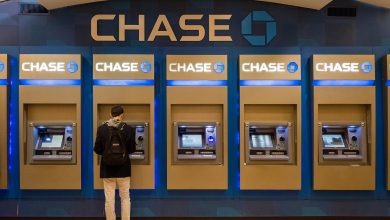What Bank Should I Use?

Choosing the Right Bank: A Guide to Finding the Perfect Fit
When it comes to choosing a bank, the decision is more significant than it might initially seem. The right bank can simplify your finances, save you money, and even help you achieve your financial goals. But with so many options available—ranging from local credit unions to national banks and digital-only challengers—how do you know which bank is right for you? Here’s a guide to help you decide.
Factors to Consider When Choosing a Bank
Your financial needs are unique, and so are the services offered by different banks. Before committing, evaluate the following factors:
1. Types of Accounts Offered
- Checking Accounts: Are you looking for low fees, easy access, or rewards?
- Savings Accounts: Check for interest rates, fees, and minimum balance requirements.
- Specialty Accounts: Do you need accounts for kids, students, or seniors?
2. Fees and Costs
- Look for monthly maintenance fees, overdraft fees, ATM charges, and transaction fees.
- Some banks waive fees if you meet certain conditions, like maintaining a minimum balance or setting up direct deposits.
3. Interest Rates
- For savings accounts or certificates of deposit (CDs), compare annual percentage yields (APYs).
- Higher interest rates mean better returns on your deposits.
4. Convenience
- Branch Access: Do you prefer face-to-face banking? A bank with a strong local presence is ideal.
- ATM Network: Ensure there are sufficient ATMs nearby or within your usual travel routes.
- Online and Mobile Banking: For tech-savvy users, a robust mobile app and online platform are non-negotiable.
5. Customer Service
- Read reviews and ask around about the bank’s reputation for customer support.
- Look for banks with 24/7 customer service options, especially if you travel frequently.
6. Special Features
- Some banks offer perks like cashback rewards, sign-up bonuses, or discounts on loans for account holders.
Types of Banks to Consider
Understanding the different kinds of banks can help you narrow down your choices.
1. Traditional Banks
- Best for: Comprehensive services, in-person support, and wide branch/ATM access.
- Examples: Chase, Wells Fargo, and Bank of America.
- Pros: Full range of financial products, often with bundled services.
- Cons: Higher fees and lower interest rates compared to online banks.
2. Online-Only Banks
- Best for: High savings interest rates and lower fees.
- Examples: Ally Bank, Chime, SoFi.
- Pros: No physical branches mean lower overhead, resulting in better savings rates and fewer fees.
- Cons: Limited options for depositing cash and in-person support.
3. Credit Unions
- Best for: Personalized service and lower loan rates.
- Examples: Navy Federal Credit Union, and Alliant Credit Union.
- Pros: Member-owned, not-for-profit institutions often offer better rates and lower fees.
- Cons: May lack extensive branch networks or cutting-edge technology.
4. Neobanks
- Best for: Tech-savvy individuals seeking a mobile-first banking experience.
- Examples: Varo, Current, Revolut.
- Pros: Focus on innovative features like real-time budgeting tools.
- Cons: Limited services compared to full-service banks.
Questions to Ask Before Choosing a Bank
- What are my financial goals?
- Are you saving for a house, managing daily expenses, or planning for retirement?
- What’s most important to me: low fees, high convenience, or better savings rates?
- How do I prefer to interact with my bank?
- Online, in-person, or a mix of both?
- Does the bank align with my values?
- Some people prioritize eco-friendly banks or those with strong community initiatives.
Making the Final Decision
Once you’ve narrowed down your choices, consider these final steps:
- Compare Accounts Side-by-Side: Use online comparison tools to weigh fees, features, and interest rates.
- Visit the Bank (if applicable): For traditional banks or credit unions, a visit can help you gauge customer service.
- Start Small: Open a single account to test the waters before fully committing.



